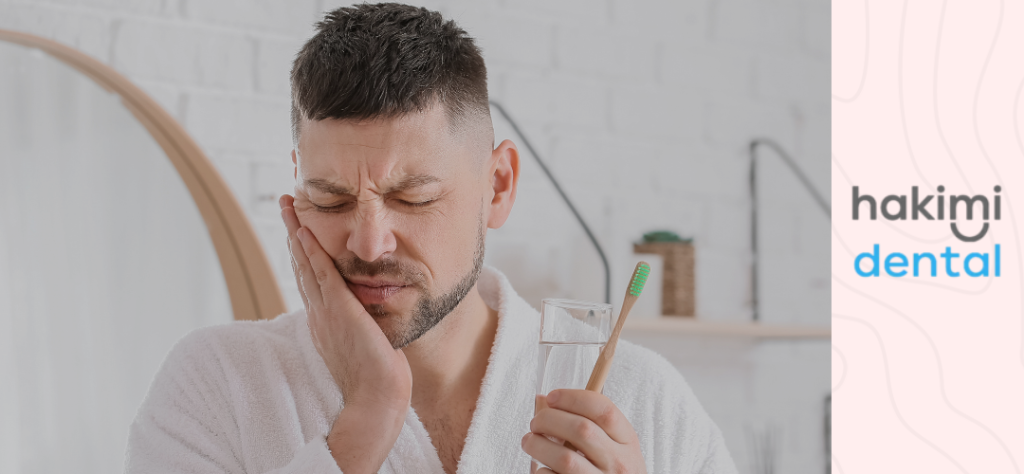A dental abscess is a painful condition that can significantly impact your oral health. It occurs when a pocket of pus forms in a tooth or gum due to a bacterial infection. Understanding how to treat a dental abscess is crucial for relieving pain and preventing further complications.
This blog will provide an in-depth look at dental abscess treatments, helping you to recognise symptoms, understand treatment options, and learn how to prevent future occurrences.

What is a Dental Abscess?
A dental abscess is a collection of pus caused by a bacterial infection, typically resulting from untreated cavities, gum disease, or dental trauma. There are three main types of dental abscesses:
- Periapical Abscess: Occurs at the tip of the tooth root.
- Periodontal Abscess: Occurs in the gums at the side of a tooth root.
- Gingival Abscess: Occurs in the gum tissue.
Each type requires prompt treatment to prevent the infection from spreading and causing further health issues.
Recognising the Symptoms of a Dental Abscess
Common symptoms of a dental abscess include:
- Severe, persistent, throbbing toothache that can radiate to the jaw, neck, or ear
- Sensitivity to hot and cold temperatures
- Swelling in your face or cheek
- Tender, swollen lymph nodes under your jaw or in your neck
- Sudden rush of foul-smelling and foul-tasting fluid in your mouth
- Difficulty breathing or swallowing
If you experience any of these symptoms, it is essential to seek dental care immediately. Early intervention can prevent complications and ensure more effective treatment.
Dental Abscess Treatment Options
Treating a dental abscess typically involves addressing the infection and relieving pain. Here are the main dental abscess treatments:
- Antibiotics Antibiotics are often prescribed to help eliminate the bacterial infection. They are especially important if the infection has spread or if you have a weakened immune system. However, antibiotics alone do not cure a dental abscess; they are used in conjunction with other treatments to ensure the infection is completely eradicated.
- Drainage of the Abscess Draining the abscess is a crucial step in treatment. The dentist will make a small incision in the abscess to allow the pus to escape, which helps to reduce pain and swelling. This procedure is typically performed under local anaesthesia.
- Root Canal Treatment For a periapical abscess, root canal treatment may be necessary. This involves removing the infected pulp from inside the tooth, cleaning and disinfecting the root canals, and then filling and sealing the space. A crown may be placed on the tooth to restore its function and appearance.
- Tooth Extraction In severe cases where the tooth cannot be saved, extraction may be necessary. Removing the infected tooth can prevent the spread of infection to neighbouring teeth and other parts of the body.
Surgery For periodontal abscesses, surgical intervention may be required to clean the infected area and remove any diseased tissue. This is often followed by scaling and root planing to remove plaque and tartar build-up below the gum line.
Home Remedies and Pain Relief
While professional dental treatment is essential for a dental abscess, there are home remedies that can help manage pain and reduce discomfort until you see a dentist:
- Rinse with Salt Water: A warm salt water rinse can help reduce inflammation and draw out pus.
- Over-the-Counter Pain Relievers: Medications like ibuprofen or paracetamol can help relieve pain and reduce inflammation.
Cold Compress: Applying a cold compress to the outside of your cheek can help reduce swelling and numb the pain.
Preventing Dental Abscesses
Prevention is always better than cure. Here are some tips to help prevent dental abscesses:
- Maintain Good Oral Hygiene: Brush your teeth twice a day, floss daily, and use an antiseptic mouthwash.
- Regular Dental Check-ups: Visit your dentist regularly for check-ups and cleanings. This helps to identify and treat any issues before they become serious.
- Healthy Diet: Limit sugary foods and drinks that can contribute to tooth decay.
Treat Dental Problems Promptly: Address any dental issues, such as cavities or gum disease, as soon as they arise.
Conclusion
A dental abscess is a serious condition that requires prompt treatment to prevent complications and ensure optimal oral health. Understanding the various dental abscess treatments can help you manage the condition effectively and reduce the risk of future abscesses. Remember, maintaining good oral hygiene, having regular dental check-ups, and addressing dental issues promptly are key to preventing dental abscesses.
If you suspect you have a dental abscess, do not hesitate to contact our dentist for an evaluation and appropriate treatment. Taking swift action will help you get back to enjoying a healthy, pain-free smile.
FAQs
A dental abscess is typically caused by a bacterial infection resulting from untreated tooth decay, gum disease, or a cracked tooth. The bacteria enter the tooth or gum tissue and cause an infection, leading to the formation of an abscess.
A dentist will diagnose a dental abscess through a clinical examination and by reviewing your symptoms. They may also take X-rays to identify the location and extent of the infection.
No, a dental abscess cannot heal on its own. Professional dental treatment is necessary to drain the abscess, eliminate the infection, and prevent complications. Delaying treatment can lead to more serious health issues.
Dental abscess treatment is generally not painful as local anaesthesia is used to numb the area during procedures like drainage or root canal treatment. You may experience some discomfort after the procedure, but this can be managed with painkillers.
If you suspect you have a dental abscess, seek dental care immediately. Early treatment is crucial to prevent the infection from spreading and to alleviate pain and swelling. In the meantime, you can use home remedies like salt water rinses and over-the-counter pain relievers to manage discomfort.
